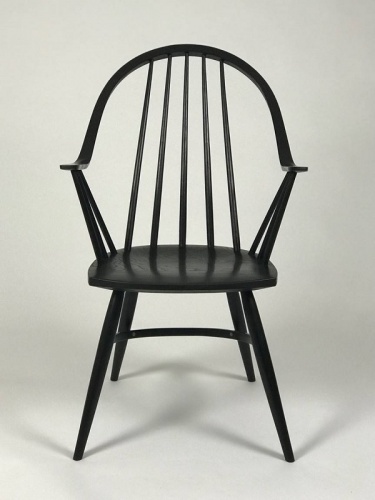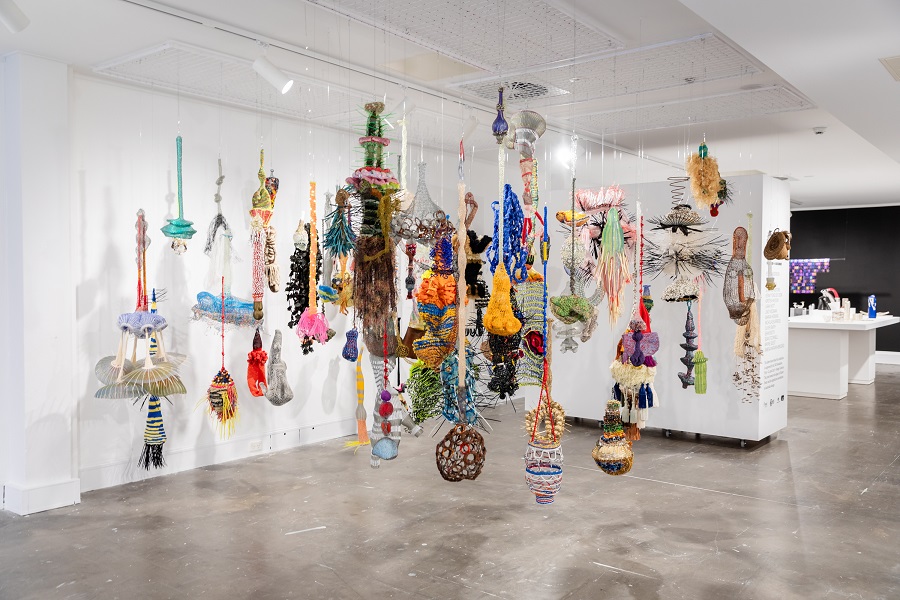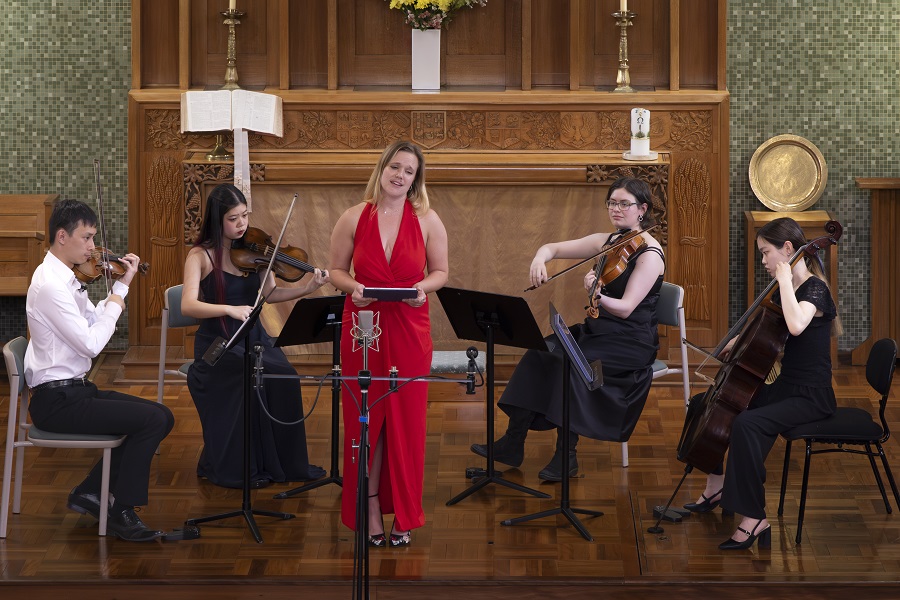
IN n the 35th year of Bungendore Wood Works, this is an important exhibition of a large number of works of high-standard furniture with many of the makers being young and upcoming – names that are new to the scene. Several prizes were awarded – all well-deserved.
The makers were given a brief: “To create a well-considered and crafted piece with saleability in a gallery context” with an “emphasis… on individually designed and made work”.
The interpretations are as broad as the number of exhibitors, as might be expected.

Will Matthysen, who regularly exhibits at Bungendore Wood Works, won the Felder Award for Fine Furniture for an eight day Wall Clock in fiddleback blackwood, sycamore, Huon pine and ancient redgum. I am always in awe that such fine, working parts can be made from wood. It combines the beauty of a work of art and the functionality of a wall clock.
Several outstanding works are on exhibit. Damien Wright uses ancient redgum for a long, plain sideboard with the title of “Tread Lightly”. The dark timber is one Wright uses frequently and in this case the base of the drawer pulls, and the four tiny feet are cased in sterling silver. They catch the light and despite its size, it appears to float.
Many of the pieces exhibited are drinks cabinets – perhaps not surprising, as it is an occasional piece of furniture that can be added to a room and have a presence. In most examples, the cases are suspended reducing the heavy appearance of a full length cupboard.

Helmut Lueckenhausen is exhibiting two works, “Barong Watching” and “Garuda Amongst the Reeds”. They are of different sizes but are similar in design and materials. Lueckenhausen draws his inspiration from the natural world, often using animal-like forms. Several fan-like leaves rise from the top and are extended beneath the case as reeds might in a waterway.
Furniture designer/maker Adrian Potter donated a prize for a winning chair, identified as The George Ingham Fine Chair Making Award. This was won by Bernard Chandley for “CoCo” armchair in kiln-fired white oak and locally grown elm. It is a lyrical form, based on a traditional style.
There are more than 70 works in this exhibition – far too many to discuss here so I strongly urge anyone interested in fine furniture that will last for centuries to visit this major exhibition.
Who can be trusted?
In a world of spin and confusion, there’s never been a more important time to support independent journalism in Canberra.
If you trust our work online and want to enforce the power of independent voices, I invite you to make a small contribution.
Every dollar of support is invested back into our journalism to help keep citynews.com.au strong and free.
Thank you,
Ian Meikle, editor




Leave a Reply